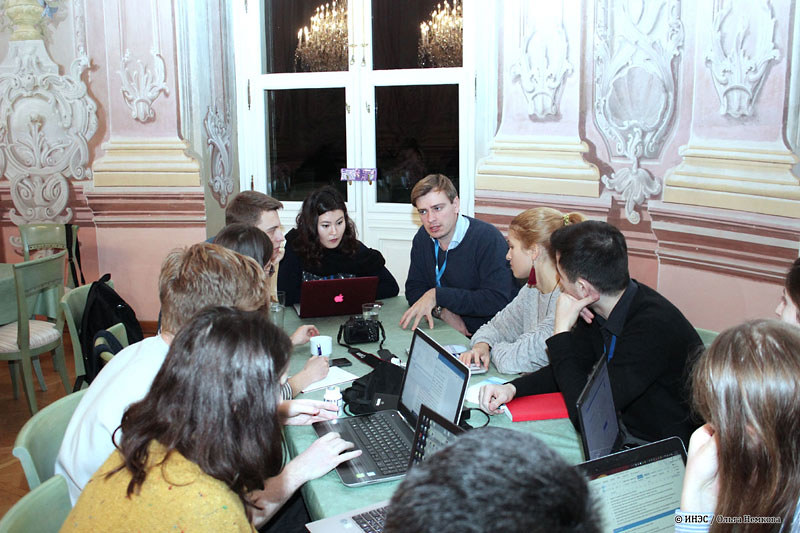
Looking ahead: Future opportunities in the greater Eurasian space
Towards the end of 2017, young researchers, senior experts, and high-level policymakers had the opportunity to engage in vibrant discussions on possible futures for the greater Eurasian space in 2040, and the potential of youth to contribute to economic cooperation and sustainable economic development in the region.
As part of the IIASA Futures Initiative “Challenges and Opportunities of Economic Integration within a wider European and Eurasian Space”, IIASA hosted the International Youth Forum: Future of Eurasian and European Integration: Foresight 2040, from 4 to 8 December 2017.
The event was co-organized by IIASA and the Institute for Economic Strategies of the Russian Academy of Sciences, with financial support from the Russian Gorchakov Public Diplomacy Fund.
A total of 40 talented young minds, together with senior experts and high-level policymakers from the European Union, the Eurasian Economic Union, the Commonwealth of Independent States, and East-, and South-East Asia, engaged in a vibrant brainstorming session on possible futures for the greater Eurasian space in 2040. Discussions included issues pertaining to economic-, humanitarian-, and security dimensions. The young participants evaluated the impact that currently emerging trends such as demographic changes, digitalization of the economy, block chains, and 3D-printing are going to have on regional economic integration. A foresight report based on these deliberations will be published in 2018. As a highlight of the forum, the young participants buried a time capsule containing an appeal to the youth of 2040 to be opened in that year.
During the final day of the forum the young researchers took part in the high-level event, “Connectivity, trade, and economic cooperation in the European and Eurasian space”, organized by IIASA on the margins of the 24th Organization for Security and Co-operation in Europe (OSCE) Ministerial Council at the Hofburg Palace in Vienna.
Recognizing the potential of youth to contribute to economic cooperation and sustainable economic development, OSCE invited a representative of the Forum to speak to the Council’s guests. Marina Steiniger, a junior economist at the Ifo Institute for Economic Research Center for International Economics, was selected to report on how young people perceive future opportunities for closer economic cooperation in the wider European and Eurasian space.
References
[1] Kofner J, Balás P, Emerson M, Havlik P, Rovenskaya E, Stepanova A, Vinokurov E, & Kabat P (2017). High-level consultation meeting on Eurasian Economic Integration. IIASA project “Challenges and Opportunities of Economic Integration within a Wider European and Eurasian Space” Workshop Report. International Institute for Applied Systems Analysis , Laxenburg, Austria
IIASA Contributors
- Péter Balás, Advanced Systems Analysis
- Pavel Kabat, Director General and CEO
- Jurij Kofner, Advanced Systems Analysis
- Nadejda Komendantova-Amann, Risk and Resilience
- Elena Rovenskaya, Advanced Systems Analysis
- Sergey Sizov, Exploratory and Special Projects
- Leena Ilmola-Sheppard, Advanced Systems Analysis
- Anastasia Stepanova, Advanced System Analysis
Funders
Collaborators
- Peter Havlik, Vienna Institute for International Economic Studies (wiiw), Austria, and IIASA
- Michael Emerson, Centre for European Policy Studies (CEPS), Belgium, and IIASA
- Evgeny Vinokurov, Centre for Integration Studies at Eurasian Development Bank, Russia, and IIASA
- Ifo Institute for Economic Research, Center for International Economics
Further information
Other highlights
Top image © INES | J.Kofner




